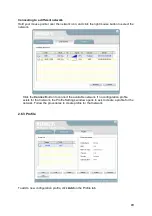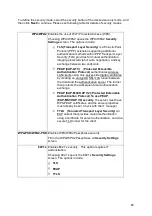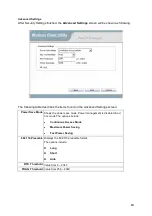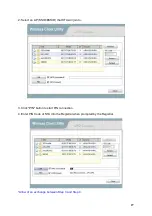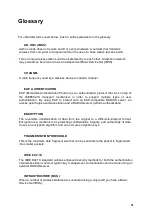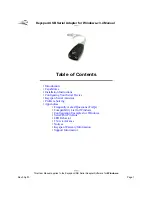
32
ROAMING
In an infrastructure network, wireless stations are able to switch from one BSS to another
as they move between the coverage areas. During this period, the wireless stations
maintain uninterrupted connection to the network. This is roaming. As the wireless station
moves from place to place, it is responsible for choosing the most appropriate AP
depending on the signal strength, network utilization among other factors.
SSID
The SSID (Service Set Identity) is a unique name shared among all wireless devices in a
wireless network. Wireless devices must have the same SSID to communicate with each
other.
TEMPORAL KEY INTEGRITY PROTOCOL (TKIP)
Temporal Key Integrity Protocol (TKIP) uses 128-bit keys that are dynamically generated and
distributed by the authentication server.
USER AUTHENTICATION
WPA applies IEEE 802.1X and Extensible Authentication Protocol (EAP) to authenticate
wireless clients using an external RADIUS database. If you do not have an external RADIUS
server, use WPA-PSK/WPA2-PSK (WPA -Pre-Shared Key) that only requires a single (identi-
cal) password entered into each access point, wireless gateway and wireless client. As long
as the passwords match, clients will be granted access to a WLAN.
WEP
WEP (Wired Equivalent Privacy) encryption scrambles all data packets transmitted between
the WCB-321A and the AP or other wireless stations to keep network communications pri-
vate. Both the wireless stations and the access points must use the same WEP key for data
encryption and decryption.
WPA/WPA2
Wi-Fi Protected Access (WPA) and WPA2 (future upgrade) is a subset of the IEEE 802.11
i security specification draft. Key differences between WPA and WEP are user
authentication and improved data encryption. WPA2 is a wireless security standard that
defines stronger encryption, authentication and key management than WPA.



